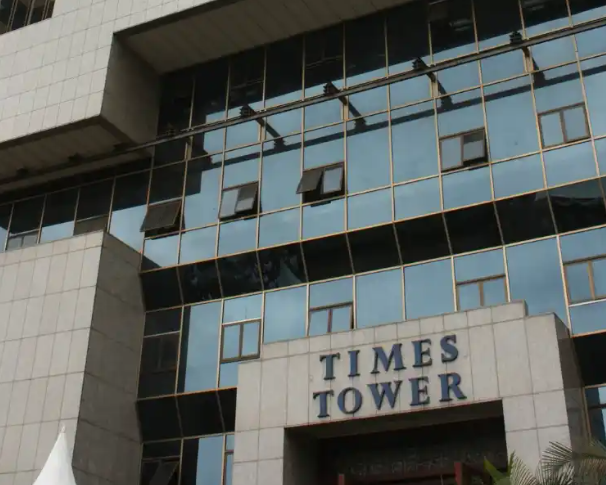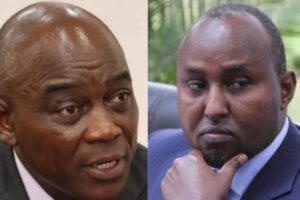Last year, the government spent over Sh500 billion on tax exemptions, which directly impacted taxpayers and forced the government to implement additional taxation measures to meet its financial needs.
MPs have intensified their investigation into tax exemptions amounting to billions of shillings granted to Blue Nile Rolling Mills, despite the company allegedly failing to meet the required criteria.
New details presented to MPs revealed that the company was granted benefits, although there was no evidence it fulfilled the terms of the agreement.
National Treasury officials, appearing before the Committee on Delegated Legislation, struggled to justify the 2020 decision to grant tax exemptions irregularly.
National Treasury’s Director of Macro and Fiscal Affairs, Musa Kathanje, representing PS Chris Kiptoo, could not quantify how much the Kenya Revenue Authority (KRA) lost due to the deal.
“The tax incentives for Blue Nile Rolling Mills Limited were granted in 2020 with the expectation that the company would create jobs and increase exports,” said Kathanje.
Committee chair and Ainabkoi MP Samuel Chepkong’a argued that Blue Nile, operating under the Special Operating Framework Arrangement (SOFA), was illegally granted tax exemptions.
Under the SOFA agreement, which Blue Nile signed with the government in 2020, the company was exempted from paying up to 10% in corporate income tax.
Additionally, they received exemptions from Value Added Tax (VAT), Import Duty, Import Declaration Fees (IDF), and Railway Development Levy (RDL) on raw material imports for ten years, an arrangement that many manufacturers claim disrupted the steel industry.
Documents presented to the committee revealed that the tax relief was awarded unlawfully, as the institutions responsible for developing and passing laws to enforce tax exemptions were not involved.
It also emerged that the gazette notice the officials relied on was neither domesticated nor placed under the East African Community (EAC) Act.
“You referred to a gazette notice that was signed. Where is it? Is this act a Kenyan law?” asked the chair.
The Treasury’s reliance on a non-domesticated document not aligned with the EAC Act was called into question.
“Article 2 of our Constitution acknowledges international treaties, which is fine, and you referenced one from Tanzania.
However, there’s a process treaties must go through Parliament for domestication,” said Nyando MP Jared Otieno.
“Where did Kenya domesticate what you presented before us? Otherwise, it’s not recognized in Kenya.”
Further questions were raised about why every review of finance laws seemed tailored to benefit specific companies.
“It is clear you lack the necessary details or comprehensive answers.
As a committee, we want to meet PS Chris Kiptoo in person to get the answers we need about the Blue Nile Rolling Mills SOFA deal,” said Chepkong’a.
The committee pressed for clarity on how much Blue Nile benefited from the tax exemptions, but Treasury officials diverted the issue to KRA, despite earlier claiming to have the figures.
They also failed to provide documentation proving that the company met the requirements to be awarded the SOFA arrangement.
Treasury officials struggled to give comprehensive details on the agreement, including the precise amount of tax relief granted.
They were also unable to explain how the agreement with Blue Nile had benefited the country.
Their claim that the company had secured the export of galvanized wires remained unsubstantiated, with no supporting documentation.
“For a company to receive the SOFA arrangement, most of its employees must be Kenyan. The officials claimed the company employed 1,000 people, but evidence showed only 300 were Kenyans,” part of the submissions read.
Moreover, the company is required to have operating capital of Sh10 billion, but Blue Nile was seemingly favored despite its capital being Sh2.5 billion.
The committee sought clarification on the advisory opinion issued by the Attorney General’s office, suggesting possible collusion between certain Treasury officials and their counterparts in the State Law Office to give biased opinions benefiting a few individuals.
Ainabkoi MP expressed concern that actions by certain government elements threatened the sustainability of local steel production, unfairly advantaging a few competitors.
There were additional concerns about the impact on taxpayers, particularly as KRA faces a deficit of over Sh370 billion.
The committee requested an additional two weeks to investigate the operations of Blue Nile and other companies that may have illegally benefited from tax exemptions over the years.
Lawyer Apollo Mboya argued that the exemption was arbitrary, unprocedural, and unconstitutional because it discriminated against other industry players.
The National Assembly, along with the Treasury and Trade Cabinet Secretaries and their Principal Secretaries, were listed as the first to fifth respondents, respectively.





















Add Comment